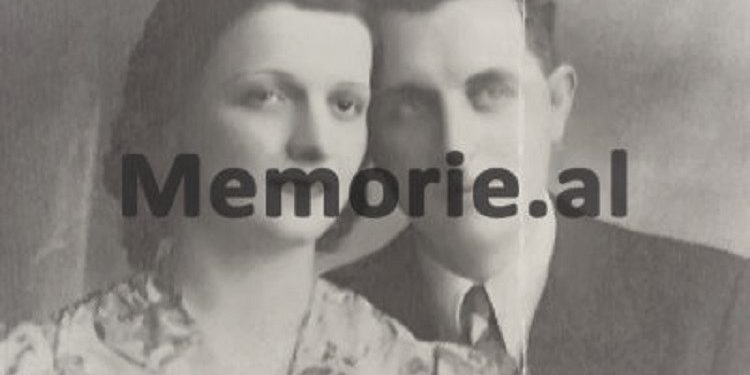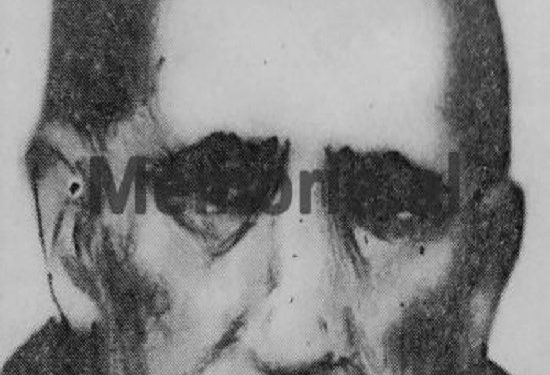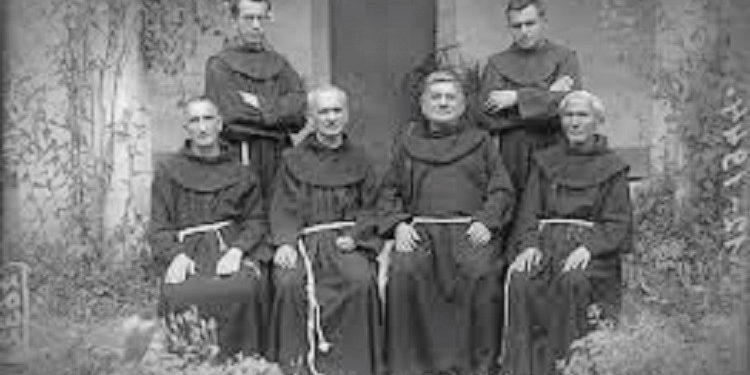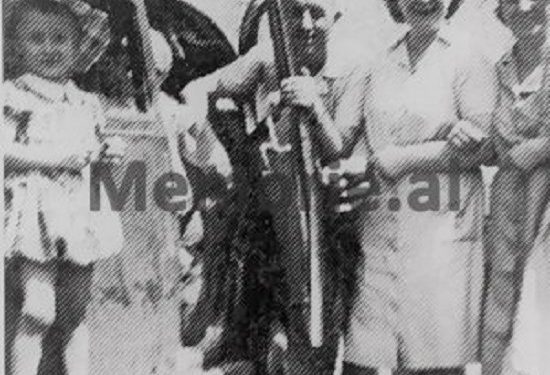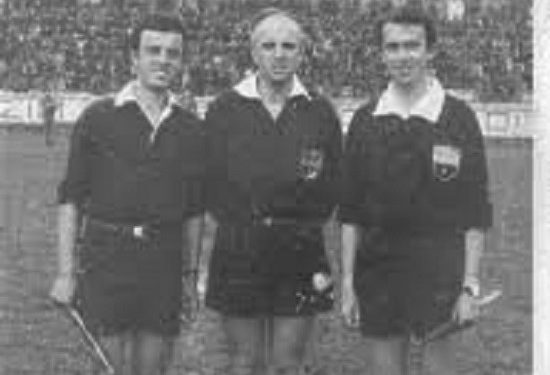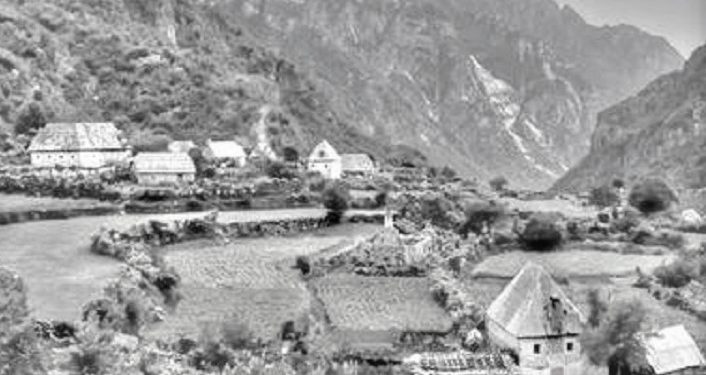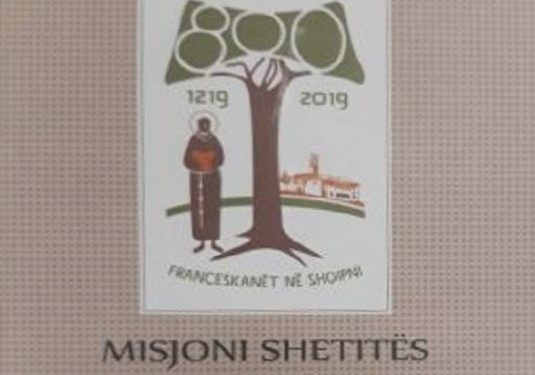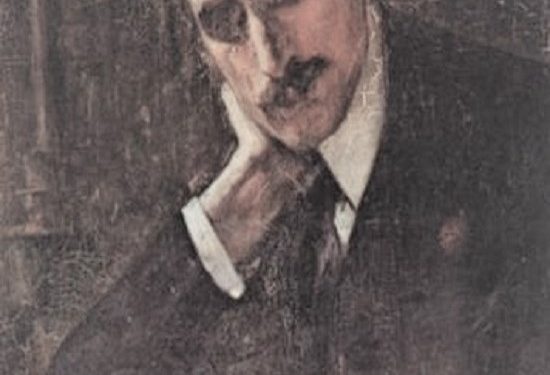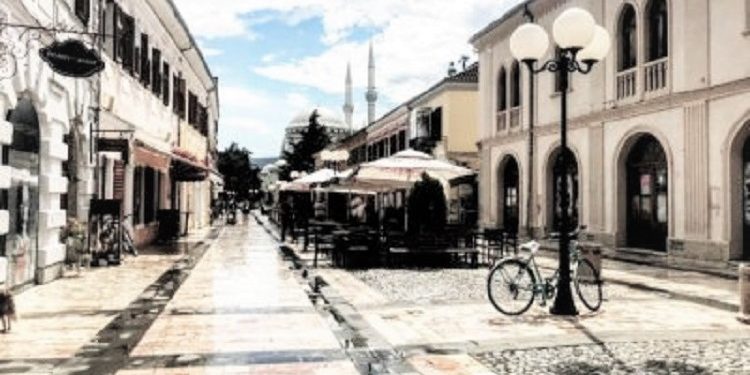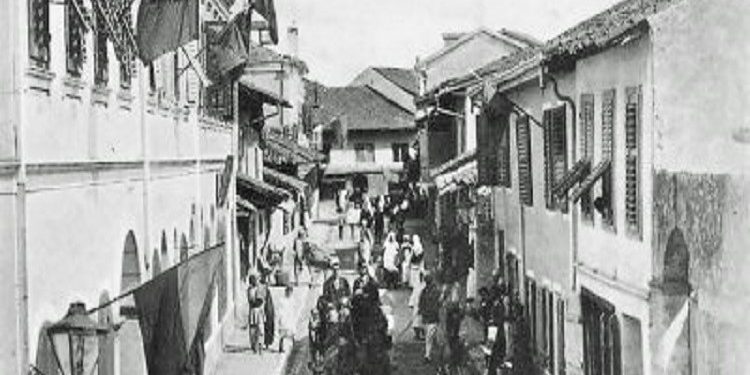Dashnor Kaloçi
Memorie.al publishes the unknown story of the Shkodra family Prelaj, with early origin from the village of Malësia e Madhe from where they inherited the surname, where their first, Matishi, was settled in the city of Shkodra in 1850, after had taken with him an Austrian who had lodged in their house, sending him to his friends with whom he traded in that city. How could the three sons of that family, Pashko, Marjani and Peter, study and graduate in Theology, Philosophy and Medicine at some of the most famous universities in Europe, to come and then serve in their homeland, where for half century, were persecuted by the communist regime of Enver Hoxha, ending in prisons and internments.
Like many old noble families from Shkodra, mainly of the Catholic faith who were mistreated, persecuted and massacred by the communist regime of Enver Hoxha since his coming to power in November 1944, was the Prelaj family, which succumbed to that tragic “fate”. Who were the Prelaj, what is the origin of that family, when they settled in Shkodra and who were the suckers who named it and where did they study?
How the Prela settled in Shkodra
The origin of the Prelaj family is from the village of the same name, Prelaj of Malësia e Madhe, in the area above Shkodra. According to the testimonies of the descendants of this family, the first of this house named Matish Prelaj, who was born around 1830, moved from his native village in 1850 and settled in the city of Shkodra. What prompted Matish to leave his village where he had the best regulated family economy, to relocate to Shkodra, where he had no relatives or family where he could rely on to stabilize?! According to some testimonies of the descendants of the Prelaj family, it is known that in 1850, in the house of Matish in the village of Prelaj of Malësia e Madhe, a distant friend from Austria, who had come to these parts to trade, stayed… Fascinated and impressed by the hospitality of the Prela family, the distant friend insisted on taking the young Matish with him to Shkodra, to introduce him to his friends from Shkodra, with whom he had friendships and trade relations. The Prelaj family, in order to do the honor to the end of the friend, took Matish with them, more as a companion and not for what the Austrian friend thought. In the city of Shkodra, the Austrian friend, after walking Matish in the most beautiful places, such as Rozafa Castle, the characteristic Bazaar, etc. (where Matish was lucky enough to see them for the first time), they stayed in a Shkodra family, with him which the Austrian had friendship and trade relations, because there the fabrics in the loom wandered and he traded them in Austria. After some time, the Austrian friend left for his country, while Matishi, who maintained friendship with that family, began to trade, taking the fabrics they wove and selling them in the villages of Malësia. It was not long before Matishi made good money from that job, which changed the course of his life. After some time, the owner of that family gave Matish one of his daughters as a wife, this caused Matishi to finally settle in Shkodra.
Father Pashko Prelaj
From Matish’s marriage to the daughter of a Shkodra trading family, five sons were born, who were baptized with the names: Pashko, Marjan, Luigj, Tef and Pjetër. The eldest of the children was Pashko, who was born around 1875. Although Matish Prelaj himself was not educated, thanks to the good economic situation he created, he took care to educate his sons. Pashkon, the eldest of the children, sent him to study at the Franciscan College of Shkodra and then at the Pontefik Seminary, which he graduated in 1899. After graduating from this school, he was sent to study Theology and Philosophy in University of Innsbruck in Austria. After graduating from this university, in 1905, Pashko Prelaj returned to Albania and after being ordained a priest, he was sent to serve in the city of Peja in Kosovo and then in the Gruda area on the outskirts of Shkodra. After serving for several years in these areas, in 1917, Pashko was assigned to Zllokuqan in Montenegro and then for many years served as a priest in the city of Shkodra. After the end of the war, Pashko was appointed brother in the Franciscan Church of Tirana, where he served until 1955. After that year, he was sent to Shiroka where he served until 1963, the year in which he died.
At Marjan Prelaj
Like his older brother, the second of the children, Marjani, he was sent to the Franciscan College of the city of Shkodra, which he graduated with very good results there around 1900 and three years later, he was sent to study in Innsbruck., for Theology and Philosophy. After graduating in these two branches, in 1908, Marjani was ordained a priest in Tyrol, Austria and then came to serve in Albania. After staying for a while in his hometown of Shkodra, he was assigned to serve as a priest in the villages of Gllogjan, Theth, Iballa, etc. During the period that Father Marjani served in the city of Shkodra, he also engaged in journalistic activities and on October 1, 1913, he founded the magazine “Zani i Shënandout”, while a year later, he formed the society “The daughters of Our Lady”, which at that time became a center of education for the youth of Shkodra, not only religious, but also secular. As a parish priest in the villages of Mirdita included in the Shkodra Region, Father Marjani often went as a traveling missionary to the villages included in the Archdiocese of Skopje and that of Bar. As a result of these visits, it became possible for him to build a new parish in Tuz and a new Traboin church. After the end of the War, in 1946, Father Marjani was arrested by the communist regime and imprisoned for three years. After finishing prison, in 1950, he was arrested again and released a few months later. In the same year he was appointed provisional by the Church superiors, as a Provincial of the Franciscan Order in Shkodra, a position he held until 1952. Six years later, in 1958, he was exiled to the villages of Lushnja, where he worked for two years in agriculture. Father Zef Pëllumbi, one of the martyrs of the Albanian Catholic Church, who has long suffered in the prisons of the communist regime, recalls Father Marjan Prelaj: “Father Marjani was an old man but who had new ideas and vision. He had been accused of being a Christian Democrat, since he had been the founder of the Catholic Women’s Religious Youth Association in 1909. Father Marjani defended himself by saying that he knew as much about politics as a small baby. However, he showed that in 1912, it was he who secretly forwarded the letters of the heroes of the Homeland and sent them in the direction of Ismail Bey Qemali and Luigj Gurakuqi. One could say for him that he had the mania to oppose and break the laws, and even more the traditional practice: ‘He also worked with the saint’, as the people say, because he changed places every week for altars, statues and figurines. After being sentenced to three years in prison, Father Marjani was re-imprisoned after ten years for asking for the secret of the Sacrament of Confession. We all described Father Marjan as a man born two or three centuries before the meal. He was the greatest propagandist of the ‘Third Order’ in Albania, and in addition to his Assembly or parish, he always organized traveling missions to reconcile grief and bloodshed. “In old age he had rheumatoid arthritis, a little deformed of his own eyebrows, from a lump, with which he laughed himself.” After his release from prison, he passed away in 1974 in Tirana and, according to his wish, was buried in Shkodra.
Doctor Pjetër Prelaj
The fifth Prelaj brothers, Peter, who at the age of 18 was sent to study in France at the Faculty of Medicine in Paris, met his compatriot, the great painter Ndoc Martini. Ndoci lived in an attic on the outskirts of the French capital, which he also used for studios. On one of Peter’s frequent visits to his compatriot, he proposed that he paint a portrait of him with oil paints. While Ndoc Martini was throwing paints on the canvas, he never thought that that portrait (today found in the National Gallery of Arts in Tirana) would be one of the masterpieces of Albanian painting. During the years that Peter continued his studies at the Faculty of Medicine of Paris, he took part in the war, healing the wounded French soldiers. For this, before returning to Albania he was decorated with a gold medal “LEGION D’HONNUER” by the French state. After graduating in Medicine in Paris, and after the end of the First World War, Peter returned to his hometown, Shkodra. In that city Dr. Peter devoted himself to his profession of doctor, making his name soon known almost throughout Shkodra and its villages. After a while, feeling a satisfaction from his work and the savings he had amassed, he enlisted the help of the famous architect and painter, Col Idromeno, for him to do the project of a house where he would live, which would to serve as a medical clinic. The famous architect and painter, Kol Idromeno, realized Dr. Pjetrit the project of the house, which for many years is known in the city of Shkodra, as one of the buildings with beautiful architecture, where the hand of the great master can be felt. At the time that master Idromeno designed that house, he was following a design experience he had previously made such as: Grand Cafe, State Bank, DR Villa. Shiroka etc. At the request of Dr. Prelajt, the first floor of the house was designed and built for the work premises, where the Rogner apparatus and the rooms for patients’ visits were placed, while the second floor was used for living. The house that is still located at the end of Gjuhadol Street, has been declared a “Cultural Monument” and has entered the golden treasury of Albanian architecture. The end of the war found Dr. Prelajn transferred to the district of Kukës, after previously seizing the Rogner device and all the literature for its use from the communist state, which he had bought with gold in France.
Tefa and Luigji, merchant
Unlike the three brothers Pashko, Marjani, and Peter who studied Theology and Medicine, the other two brothers, Luigji and Tefa, engaged in trade. They both built from a villa near Dr.’s house. Peter. One of those villas, that of Luigji, is located at the end of Gjuhadol Street, while the other, that of Tefa, is located between the house of his two brothers. Luigji had a small mejane on the ground floor of his house, while Tefa was engaged in the trade of alcoholic beverages, which he took to Bari, Italy. Italian Guadalupe, who traded with Tefa, suggested that his son, Tonin, be educated in Italy. Thus, under the care of this barbaric merchant, Tonin Prelaj graduated in Triseste for Economics-Business and in the period between the two wars, he returned to the city of Shkodra working next to his father, Tefa. With the arrival of the communists in power in 1945, Tefa ended up in prison and, forced by force, handed over the last lek for the “democratic government” of Colonel-General Enver Hoxha. After being released from prison, Tefa was unable to practice his trade as a trader and was locked up at home. Likewise, his son Tonini, after 1945, the trade craft he had studied in Trieste, was no longer employed and he worked as a teacher in remote villages. Matish Prelaj’s children, who graduated abroad, did not enjoy their diplomas under the communist regime, but ended up in prisons and internments. From the suckers of this family, remained the young Tefa (son of Tonin and grandson of Tefa) who was able to graduate in Foreign Languages (Russian) in 1964, otherwise known as the referee of Albanian football. For several years he has lived in the USA, where he works in the company “The Daughters of Our Lady”, which was founded by his uncle, Marjan Prelaj, in 1913 in the city of Shkodra.
Tef Prela, football referee in the USA as well
Tef Prela, the well-known referee of football before the ’90s, is one of the few referees who practiced their profession even after the’ 90s, even outside their homeland. According to the well-known architect, Zhani Canco (aunt son with Tef Prela), Tef Prela with his family (wife and two sons) has been living and working in New York for about 20 years. Tefa is the first and only Albanian, who as a football referee, has been able to referee in the US, in New York and New Jersey.Memorie.al




